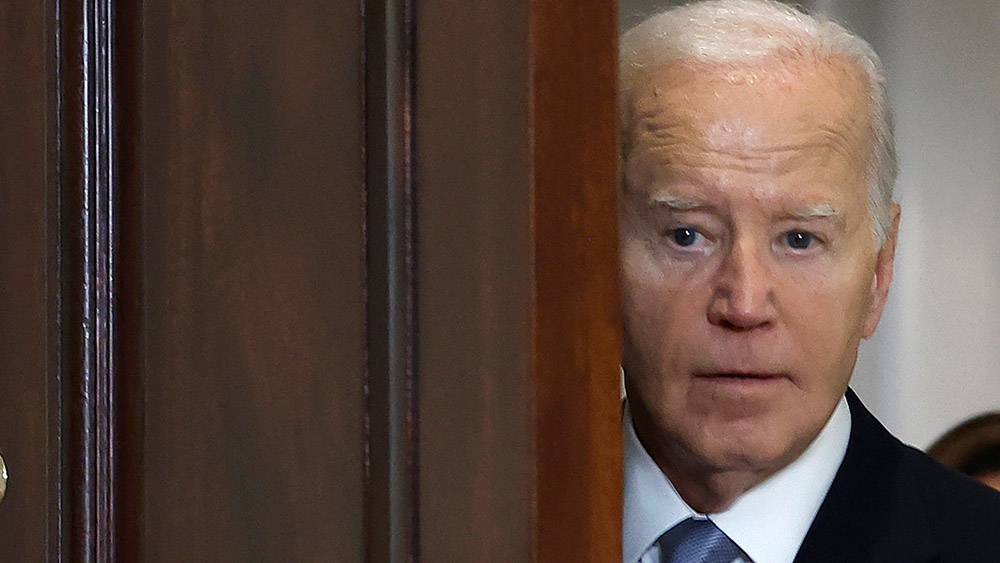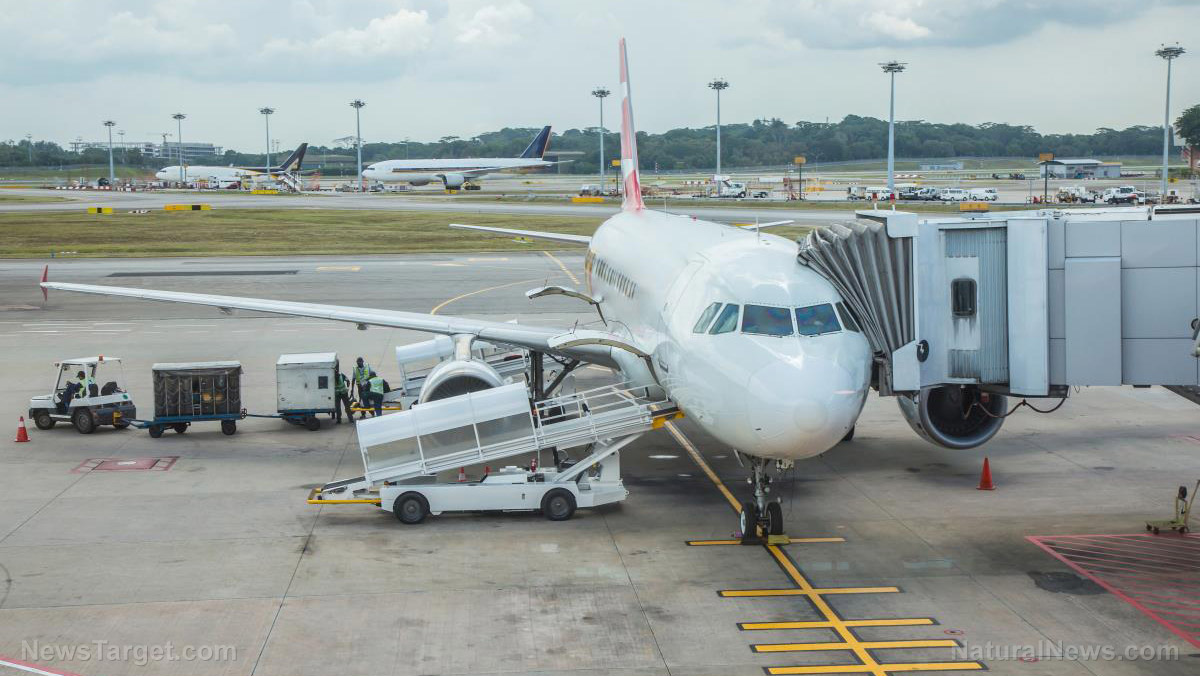Congress targets Chinese chip smuggling in bipartisan push to protect AI supremacy
05/18/2025 / By Willow Tohi

- Bipartisan lawmakers introduced the Chip Security Act on May 15 to block China from accessing advanced U.S. AI chips. Aims to close loopholes exploited by Chinese firms (e.g., Huawei, DeepSeek) to evade export controls.
- Key measures to strengthen enforcement include: real-time location tracking of chips to prevent unauthorized transfers; mandatory reporting of suspicious transactions by manufacturers; and enhanced safeguards (e.g., encryption, tamper-proof designs) led by the Commerce Department.
- Chinese entities use shell companies, smuggling and chip redesigns to bypass U.S. restrictions. Huawei claims 70% semiconductor self-sufficiency by 2028, allegedly using diverted U.S. tech.
- Defense hawks warn unchecked tech transfers empower China’s military and surveillance AI. Tech industry opposes strict mandates, fearing innovation stifling and added costs.
In a bid to stem the flow of advanced artificial intelligence (AI) chips to China, bipartisan lawmakers introduced the Chip Security Act on May 15, seeking to tighten export controls, mandate firmware-based verification and counter tactics Beijing employs to evade U.S. restrictions. The legislation, spearheaded by Reps. John Moolenaar (R-Mich.) and Raja Krishnamoorthi (D-Ill.) alongside a dozen co-sponsors, responds to mounting evidence that Chinese entities are exploiting loopholes to access U.S. technology. Lawmakers warn this illicit activity empowers China’s military, surveillance systems and AI ambitions, threatening American tech leadership and national security.
The bill emerges amid heightened scrutiny of China’s semiconductor reliance on U.S. technology, underscored by reports of chip smuggling and shell companies. A companion bill in the Senate, introduced by Sen. Tom Cotton (R-Ark.), signals a rare consensus on curbing Chinese access to critical AI infrastructure.
How the Chip Security Act would work: New layers of scrutiny
The proposed law outlines three key measures to fortify export controls:
- Location verification requirement: Chips must include embedded technology enabling real-time geographic tracking to ensure they remain in authorized regions.
- Mandatory reporting: Semiconductor manufacturers must report suspicious transactions and diverted shipments.
- Strengthened enforcement: The Department of Commerce would lead studies to identify additional safeguards, such as encryption or tamper-proof designs, to block unauthorized reprogramming of chips.
“This bill closes gaps with real safeguards to keep advanced chips out of the CCP’s hands,” Rep. Moolenaar stated.
The legislation directly targets loopholes exploited by Chinese companies like Huawei, which claimed in February it could achieve 70% semiconductor self-sufficiency by 2028—allegedly using methods bypassing U.S. restrictions. Recent scrutiny of DeepSeek, a Chinese AI startup, revealed its chatbot relied on modified U.S. chips like the Nvidia H800, a “watered-down” variant of restricted H100 chips. In April, Congress’s Select Committee on the CCP concluded DeepSeek’s advancements likely depended on diverted technology, describing it as a CCP-sanctioned effort to undermine U.S. tech dominance.
China’s evasive maneuvers: Undermining export controls despite sanctions
Chinese entities have long exploited regulatory gaps to procure U.S. chips. U.S. export rules, first tightened in 2022, originally aimed to block access to high-end semiconductors capable of accelerating AI and weapons development. However, shell companies, smuggling networks and redesigns of chips to skirt specifications have enabled Beijing to circumvent these barriers.
Huawei’s Ren Zhengfei claimed in February that the firm had surmounted U.S. “blockades,” citing advancements in domestic semiconductor production. Meanwhile, U.S. spy agencies warn China continues illegally leveraging restricted U.S. tech to build AI systems that could fuel autonomous weapons and surveillance tools, such as the asymmetrical warfare drones highlighted in Pentagon reports.
“The CCP’s exploitation of our export controls isn’t just an economic issue—it’s a direct threat to the security of American citizens and troops,” Rep. Bill Foster (D-Ill.) said. Foster emphasized the need to “leverage existing tools to fingerprint and track this technology.”
A decades-old struggle to balance security and competitiveness
The Chip Security Act joins a long line of U.S. export control reforms balancing national security with global economic ties. Prior efforts often veered between overreach and underenforcement. For instance, President Trump’s 2018 export restrictions targeting Huawei initially disrupted its global smartphone market but failed to halt its broader tech development. Later, the Biden administration’s proposed AI diffusion rule, rescinded in April, faced backlash from companies like Nvidia, which argued it would impede their global competitiveness.
The bill’s technical verifications—such as embedding real-time tracking—mark a shift from document-heavy compliance systems toward hardware-level safeguards. Analysts likens this approach to historically rigorous measures against nuclear proliferation, where controls included physical safeguards rather than just paperwork.
Political crosscurrents: Industry pushback and global rivalries
Despite bipartisan backing, tech firms oppose sweeping mandates, fearing overregulation could stifle innovation. Semiconductor manufacturers argue the bill’s verification requirements impose costly hurdles without ensuring efficacy. However, defense hawks counter that the stakes are existential: losing AI leadership to China imperils U.S. military and economic dominance.
Republican Rep. Bill Huizenga (R-Mich.) stressed the bill’s necessity, saying, “We cannot afford to sleepwalk into a future where American tech powers China’s ambitions.”
The debate unfolds amid escalating Sino-U.S. competition in AI research, with China’s DeepSeek outperforming U.S. models like ChatGPT at reduced costs last winter—a feat experts linked to illicit chips.
A balancing act between innovation and security
The Chip Security Act represents Congress’s boldest attempt yet to combat China’s illicit acquisition of U.S. AI infrastructure, but its success hinges on enforcement and technological feasibility. As lawmakers strive to close loopholes, they face pressure to avoid stifling domestic innovation. With tech giants wary of mandates and Beijing leveraging workarounds, the bill underscores a fraught reality: preserving America’s AI edge demands simultaneous vigilance and flexibility. As Sen. Cotton noted, “This is about ensuring that American technology isn’t arming our adversaries.”
Sources for this article include:
SelectCommitteeontheCCP.House.gov
Submit a correction >>
Tagged Under:
AI, big government, Big Tech, China, Chip Security Act, communist China, computer chips, computing, Congress, conspiracy, future tech, Glitch, information technology, national security, products, robots, smuggling, supply chain, surveillance, US Congress
This article may contain statements that reflect the opinion of the author
RECENT NEWS & ARTICLES
COPYRIGHT © 2017 COLLAPSE.NEWS
All content posted on this site is protected under Free Speech. Collapse.news is not responsible for content written by contributing authors. The information on this site is provided for educational and entertainment purposes only. It is not intended as a substitute for professional advice of any kind. Collapse.news assumes no responsibility for the use or misuse of this material. All trademarks, registered trademarks and service marks mentioned on this site are the property of their respective owners.





















